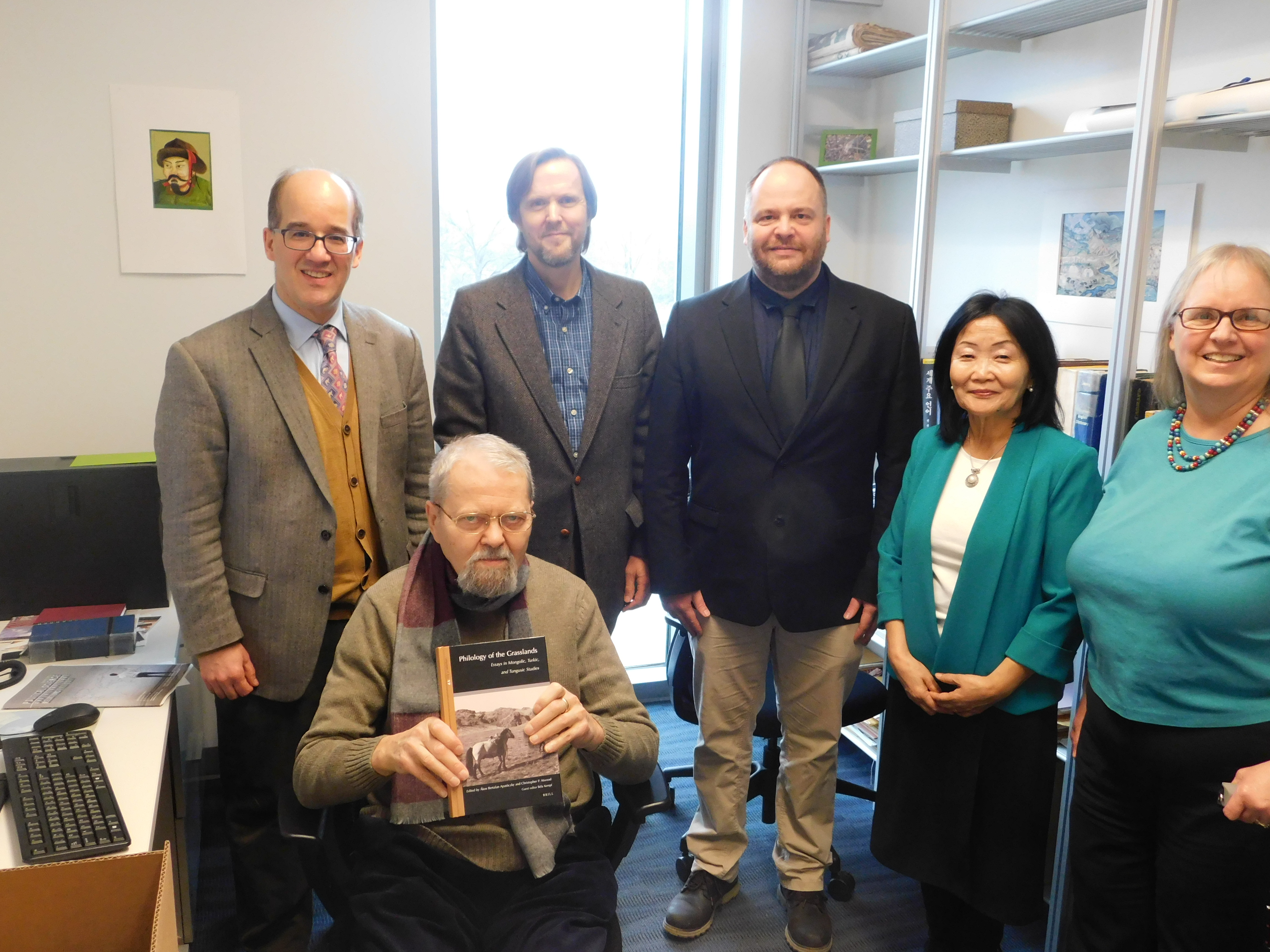Every year, as the calendars flip to the new year, the Bloomington Mongolian community comes together to celebrate the Mongolian New Year, Tsagaan Sar. This February more than 100 people—including language students, faculty, staff, and friends—gathered together to celebrate the beginning of the new year.
Usually celebrated during late January or early February, Tsagaan Sar is a celebration of the lunar new year. Traditionally, in Mongolia, Tsagaan Sar is a three-day celebration representing the end of winter and the first days of spring. It is common for families to travel to the gers (traditional Mongolian homes) of family and friends to visit and bring well wishes for the New Year. One might find themselves visiting the homes of as many as 10 friends and family members in a single day. The visits are highly ritualized and involve formalized greetings, the exchanging of gifts, and a large meal.
The preparation for the New Year begins weeks, or in some cases even months, before the festival itself. Mongolian families will begin preparing the traditional Mongolian food, buuz, a steamed dumpling filled with meat, typically mutton or beef, diced onion and garlic or salt. A Mongolian family will prepare hundreds of buuz in advance of Tsagaan Sar using the natural cold of the Mongolian steppe to freeze them until the time comes to feast. The traditional Tsagaan Sar feast also includes a variety of dairy products, rice with raisins, and traditional Mongolian cookies.
Mongolians attribute great significance to the New Year as they believe how one celebrates the festival will affect the rest of their year. If this year’s Tsagaan Sar celebration is any indication, the Bloomington community is in for a wonderful year!
Prior to the beginning of the celebration György Kara, the distinguished professor of Mongolian and Inner Asian studies in the Department of Central Eurasian Studies, was presented with a Festschrift in his honor. After the presentation, he embarked on what has been his own Bloomington Tsagaan Sar tradition of presenting personal Mongolian lunar calendars to members of the CEUS faculty and staff which can be seen hanging in many offices in the CEUS department.

Later than evening Dr. Christopher Atwood ushered in the beginning of the Earth Dog Year (and the end of the Fire Rooster Year) with a few words on the history of the celebration. The audience was then delighted by a wide variety of performances including singing, dancing, poetry reading, and musical performances. CEUS’ Mongolian language lecturer and FLTA, Tserenchunt Legden and Temuujin Nyamdavaa helped prepare their students for the performances which complemented the wonderful performances by the Bloomington Mongolian community.
After the conclusion of the first acts, audience members and performers alike, came together to enjoy a wonderful Mongolian feast courtesy of Susie Drost and the Mongolia Society. After a delicious meal, everyone reconvened for some final performances of traditional instruments such as the morin khuur, the horse head fiddle.
The evening’s celebration unfortunately had to come to an end but the night was without a doubt a resounding success. It is our hope that you are having a blessed Year of the Earth Dog and encourage all to attend next year’s celebration of Tsagaan Sar.


